|
Genres, Themes, Actors, and Directors:
- African-Americans
- Deep South
- Doctors and Nurses
- Elia Kazan Films
- Ethel Barrymore Films
- Inheritance
- Jeanne Crain Films
- Mistaken or Hidden Identities
- Racism and Race Relations
Review:
Elia Kazan was rushed in after one week to replace John Ford as director of this earnest if inevitably troubled “message film” about race relations in the south, particularly the notions of “passing” and inter-racial relationships. It makes sense that Ford wasn’t comfortable with the female-centric storyline being addressed here, and Kazan does a fine job within the inherent limitations of the material — including the fact that a white woman had to be cast in the lead role (to assuage racist southern audiences), given her romance with a white man.
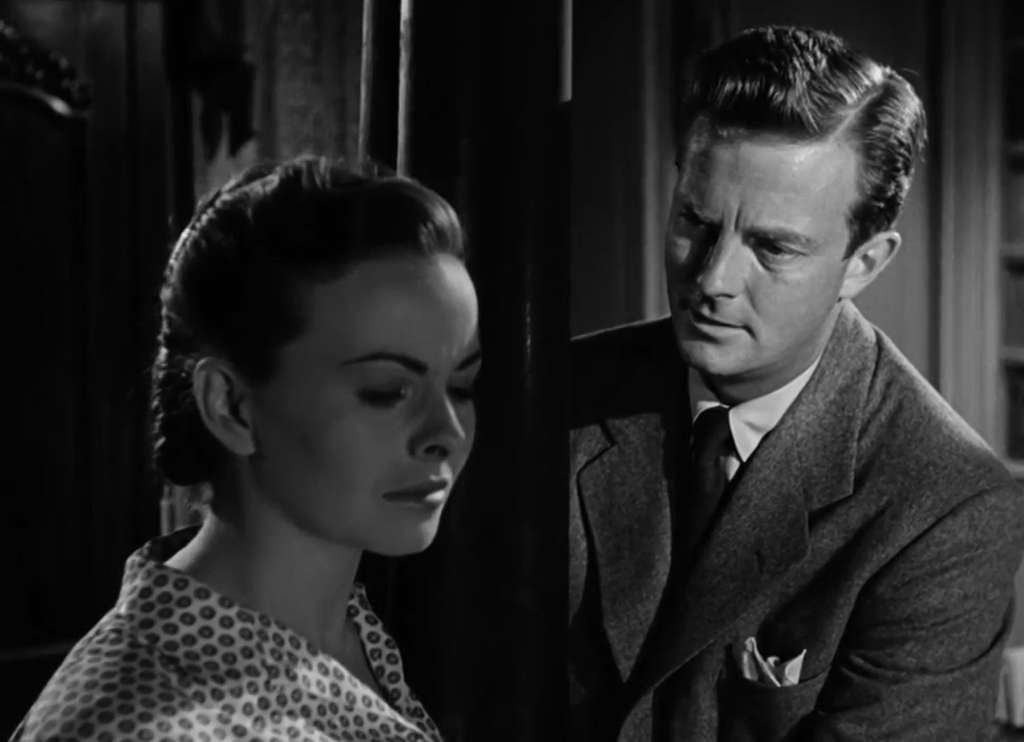
Crain is appropriately cipher-like as Pinky, spending most of the film looking either puzzled or annoyed, with expressions of deep thought on her face; to that end, Elia Kazan’s comments on working with Crain are interesting:
Jeanne Crain was a sweet girl, but she was like a Sunday school teacher. I did my best with her but she didn’t have any fire. The only good thing about her face was that it went so far in the direction of no temperament that you felt Pinky was floating through all of her experiences without reacting to them, which is part of what ‘passing’ is.
A much more dynamic presence is Waters as Crain’s Granny:
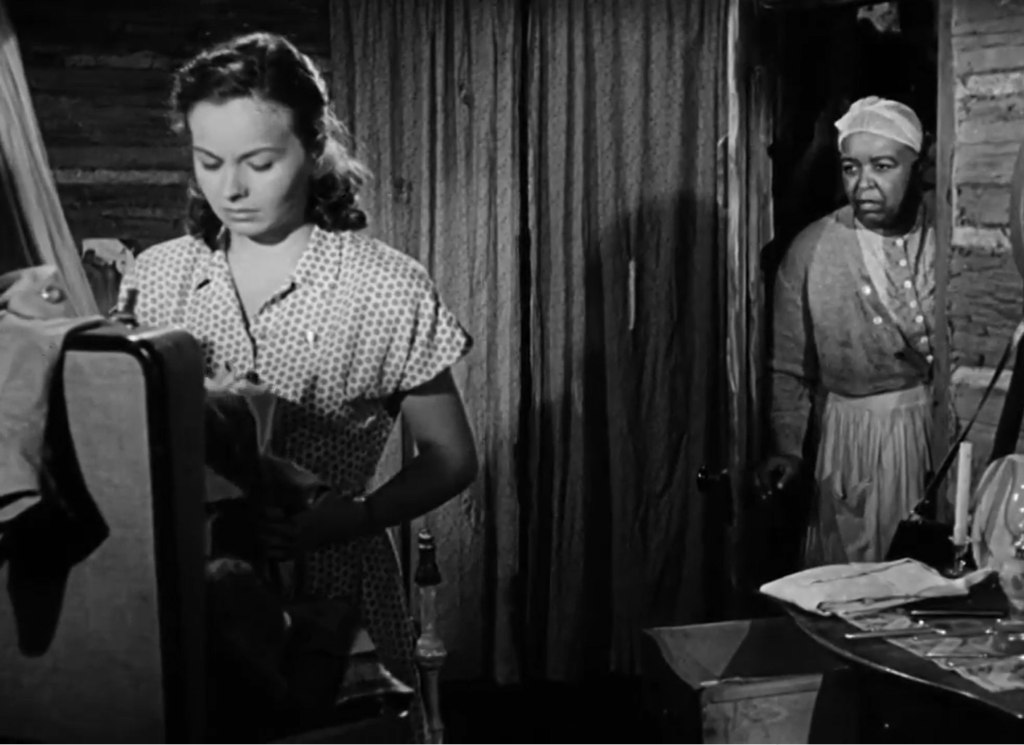
… and Barrymore is well-cast as a feisty older woman intent on breaking social norms.
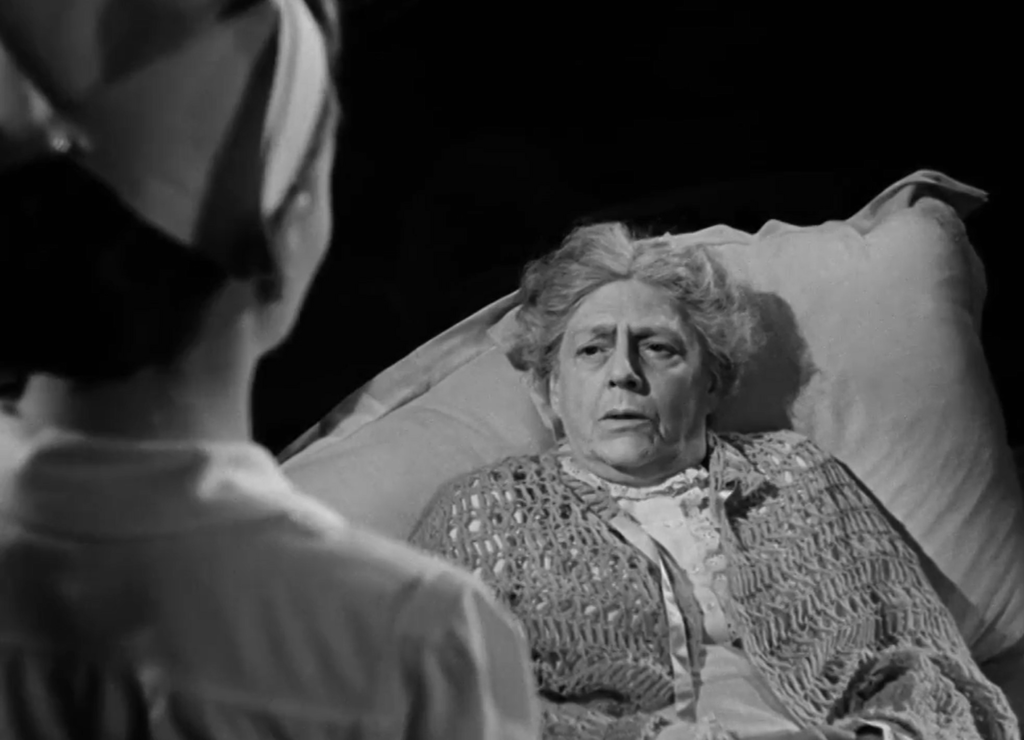
While the ending was seen by many as pandering to segregationist ideology, it actually functions well — or well enough — as an expression of Pinky’s growth, and a certain type of progress being made. Modern viewers should watch this film once, simply given its rarity as a movie addressing racism at a time when this was mostly ignored in the cinema.
Notable Performances, Qualities, and Moments:
- Ethel Waters as Dicey Johnson
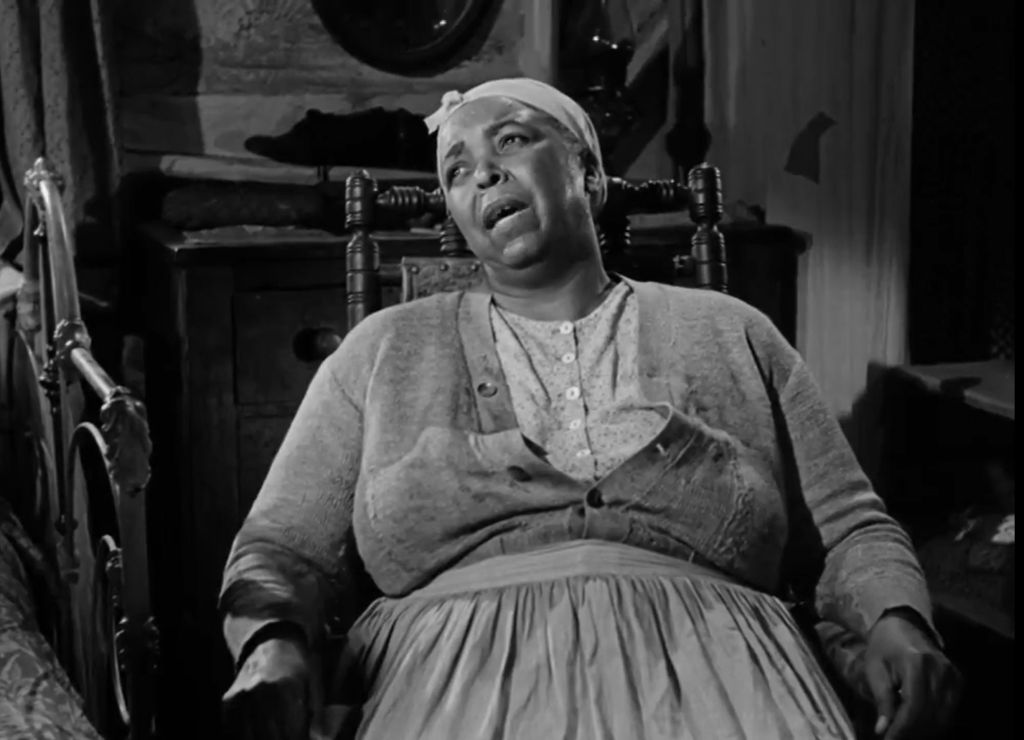
- Joseph MacDonald’s atmospheric cinematography
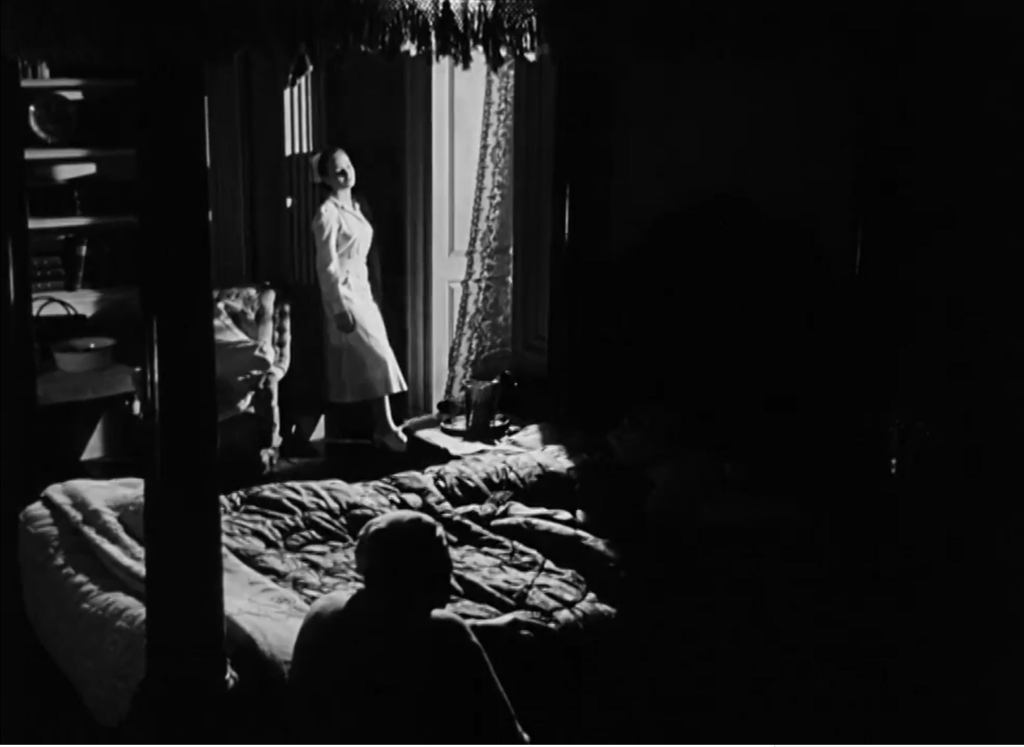
Must See?
Yes, for its historical importance. Listed as a film with Historical Relevance and a Personal Recommendation in the back of Peary’s book.
Categories
Links:
|
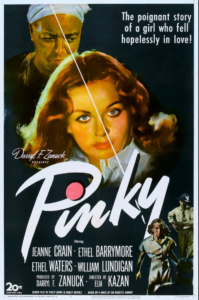





One thought on “Pinky (1949)”
Agreed; a once-must – for its study of racism.